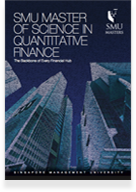
Although the popular Western interpretation of the Chinese characters for crisis — 危机 — as “danger” and “opportunity” has been found by linguists to be inaccurate, it nevertheless encapsulates the idea that opportunities may arise in times of adversity.
The global economies are currently rocked by uncertainty, with the latest Euromonitor Global Economic Outlook for 2021 to 2022 noting that “longer lasting and more severe social distancing restrictions” would reduce global real GDP growth to 4.4 per cent in 2021 and 0.8 per cent in 2022. However, could some sectors leverage on such adverse conditions for growth?
For example, the political stability in Singapore makes it a prime business hub, attracting foreign talent looking to relocate. Our little red dot is now poised to lure tech and finance companies with its low corporate tax rate, friendly business environment and reputation as a financial centre. Moreover, the latest forecast for annual economic growth has been revised to a healthy 6 to 7 per cent in 2021.
We speak with SMU Associate Professor in Quantitative Finance (Practice) Tee Chyng Wen about industries that may benefit from global instability, and top areas where opportunities may arise during adversity.
A continued boom in tech
According to Chyng Wen, technology is the obvious sector to have experienced growth during the downturn.
“All other industries have had to rely on technology to navigate the pandemic,” notes Chyng Wen, who is also Academic Director of the SMU Master of Science in Quantitative Finance (MQF) programme.
“However, to say that the tech sector has ‘benefited’ from the pandemic or global instability would be an overstatement – the technology sector had already been experiencing growing dominance, even way before the pandemic.”
For example, the five largest companies in the S&P 500 are all big tech firms and account for almost 20 per cent of the index’s entire market value, even before the outbreak of Covid-19. This year, Facebook joined the $1 trillion club, alongside Apple, Amazon, Alphabet (the parent company of Google) and Microsoft.
“What we are seeing is essentially a continuation of the trend, and not something driven by the pandemic,” says Chyng Wen. “We can only say that it helped to speed up the transition.”
Temporary pandemic disruptions
The need to maintain social distancing and the onset of global lockdowns and restrictions have certainly shaken industries such as F&B and retail. However, the pandemic has also led to growth in other areas, like cleaning and delivery services, home fitness, mental wellness services, healthcare and even gaming — seeing how Forrest Li’s online gaming and internet platform Sea Ltd surged during the pandemic.
But despite the uptick in the performance of the tech sector, Chyng Wen is certain that such a boost or disruption by the pandemic is only transitory and will not have a permanent impact.
“Human beings always expect science and technology to solve their daily problems,” adds Chyng Wen.
“When this proves to be impossible in the short term because of various restrictions, which is what we are experiencing now, we are willing to accept temporary measures to cope with the various inconveniences.”
However, he does not expect such short-term disruptions to last post-pandemic, as consumers and enterprises expect their lives to return to normalcy. Chyng Wen does advocate, on the other hand, the importance of gaining a greater awareness of financial markets by learning from the effects of such global events like Covid-19. As countries and economies become more tightly interdependent, the exposure and sensitivity of economies and markets will only become heightened.
Growth of the one-stop-shop
Driven by a need to roll out new services to meet the sudden demands triggered by the pandemic, certain companies have dramatically grown in scale during Covid-19. With businesses having to rely on e-commerce or delivery services during the closure of physical outlets, online marketplaces like Amazon or delivery platforms like Grab have increased their market power and created vast ecosystems upon which the economy is dependent.
“There is a trend of increasing monopoly, in the sense of companies providing more comprehensive services,” notes Chyng Wen.
“There is generally less fragmentation in today’s businesses, as ‘all-in-one’ platforms can provide various distinct services to the same client base, such as food delivery, ride-hailing, grocery shopping, which can be lumped together on a single platform.”
However, he also observes that the trend of companies expanding their offerings had already occurred before the crisis: “The pandemic merely serves to accelerate the evolution”.
To seize greater opportunities during a downturn, businesses need to consolidate their offerings and regroup them under a wider framework. Instead of individual companies providing distinct services, companies are increasingly analysing their client bases to serve them in as many ways possible.
Thrive during the crisis and beyond
Notably, besides modelling the success of pandemic-boosted businesses, Chyng Wen suggests learning from countries that have performed well during the current crisis.
“The message remains the same: prudence and discipline trumps complacence and insouciance,” he remarks.
“All the countries that have managed the crisis well share the common approach of being rigorous, cautious, and meticulous in their policy in handling the pandemic. Singapore is an excellent example of being prudent and pragmatic in its approach.”
Finally, Chyng Wen also observes how a crisis might motivate entrepreneurs and professionals to consider upskilling themselves. A slowdown could be the best time to return to school to master new knowledge, widen one’s professional and social networks, and delve into self-exploration.
“The best place to do this is in a university,” adds Chyng Wen.
“Take time out to recharge and improve yourself during shaky times and when opportunities are sparse, and you will be ready to go when the economy picks up again.”
Speak to our Admissions Advisors
Lee Kong Chian School of Business
Postgraduate Admissions
Singapore Management University
Lee Kong Chian School of Business
Graduate Programmes Office, Level 4
50 Stamford Road, Singapore 178899
Tel: +65 6828 0882
Join us at the upcoming events
Ayana Midplaza Jakarta
Jl. Jenderal Sudirman No.Kav 10-11, RT.10/RW.11, Karet Tengsin, Kecamatan Tanah Abang, Kota Jakarta Pusat, Daerah Khusus Ibukota
Jakarta 10220, Indonesia
148 Tran Hung Dao Boulevard, District 1
700000 Ho Chi Minh City, Vietnam
